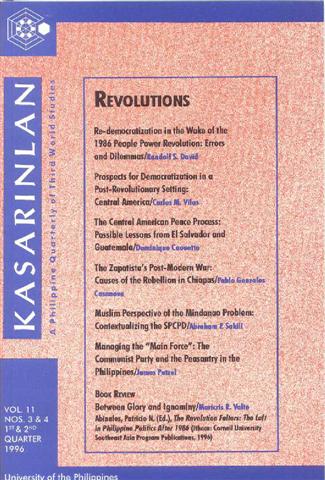The Zapatista's Post-Modern War: Causes of the Rebellion in Chiapas
Abstract
Amid accusations of today’s neoliberal ideologues that the Chiapas rebellion was nothing but the work of Stalinists and foreigners, and obdurate and upstart minorities out to manipulate the “gullible Indians” of the Lacandon rainforest and Chiapas highlands, eight factors stand out as the true causes of what may be aptly described as the Zapatista’s post-modern war. With the Maya’s heritage of resistance, the crisis of the traditional hacienda, the rise of the theology of liberation and the democratic fervor of the students of the 68 combining with impoverishment , marginalization, exclusion and institutionalized violence, the Chiapas rebellion was meant to be the first revolution of the 21st Century – inheriting from and building upon previous revolutionary postulates. In the final analysis, what these “post modern” revolutionaries aim is modest but at the same time ambitious: to defend by force of arms the land, liberty, and dignity of the people of Chiapas and Mexico, and to initiate a change in their consciousness to pave the way for democracy with dignity, justice, and autonomy. It may perhaps be brought to fruition, but in any case, it would be a tragedy for humanity if it were not.
Published
2008-06-03
How to Cite
CASANOVA, Pablo Gonzales.
The Zapatista's Post-Modern War: Causes of the Rebellion in Chiapas.
Kasarinlan: Philippine Journal of Third World Studies, [S.l.], v. 11, n. 3, june 2008.
ISSN 2012-080X.
Available at: <https://www.journals.upd.edu.ph/index.php/kasarinlan/article/view/857>. Date accessed: 28 aug. 2025.
Section
Features
Keywords
Zapatista; Social Movements; Rebellions
By submitting a manuscript, the authors agree that the exclusive rights to reproduce and distribute the article have been given to the Third World Studies Center.



